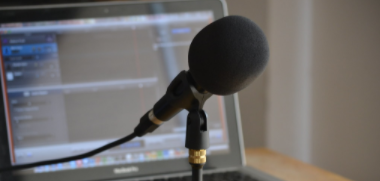
How do I become a editor?
All skill levels
Beginner
Experienced
Recommended
CUA50118
Diploma of Professional Writing and Editing
Blended, On Campus
12 months
$0 - $15,817
- There are no mandated entry requirements.


CUA40118
Certificate IV in Professional Writing and Editing
Blended, On Campus
12 - 24 months
$0 - $11,521
- There are no mandated entry requirements.



Bachelor of Communication
Blended, On Campus, Online
3 years
$0 - $97,200
- There are no mandated entry requirements.
Editor
Communications Adviser
Communications Manager
+ 23 more
Journalist
Community Engagement Officer
Podcaster
Change And Communications Manager
Content Editor
Music Journalist
Public Affairs Consultant
Media Advisor
Content Writer
Content Executive
Media Buyer
Publisher
Communications Coordinator
Media Consultant
Content Specialist
Editorial Assistant
Public Relations Executive
Speech Writer
Columnist
Newsreader
Presenter
Radio Presenter
Digital Content Coordinator








+ 3 more
Bachelor of Communication (Journalism)
On Campus
3 years
$0 - $50,976
- There are no mandated entry requirements.
Editor
Journalist
Presenter
+ 26 more
Reporter
Multimedia Writer
Digital Editor
Publishing Coordinator
Media Lawyer
Content Editor
Music Journalist
Media Advisor
Content Writer
Radio Broadcaster
Broadcaster
Fiction Writer
Book Editor
Editorial Assistant
Foreign Correspondent
News Reporter
Commentator
Newsreader
Radio Presenter
Arts Journalist
Entertainment Journalist
International Journalist
Sports Journalist
Sports Broadcaster
Critic
Arts Writer



Bachelor of Arts (Journalism)
Blended, On Campus
3 years
$0 - $97,200
- There are no mandated entry requirements.








Bachelor of Arts (Honours) (English)
Blended, On Campus
12 months
$0 - $16,992
- There are no mandated entry requirements.




Bachelor of Communication and Media
Blended, On Campus
3 years
$0 - $77,280
- There are no mandated entry requirements.



Bachelor of Communication and Media (Journalism)
Blended, On Campus
3 years
$0 - $77,280
- There are no mandated entry requirements.



Related occupations
Common questions
Further reading


The Ultimate Guide to Podcasting (Updated 2020)
17th April 2020)

